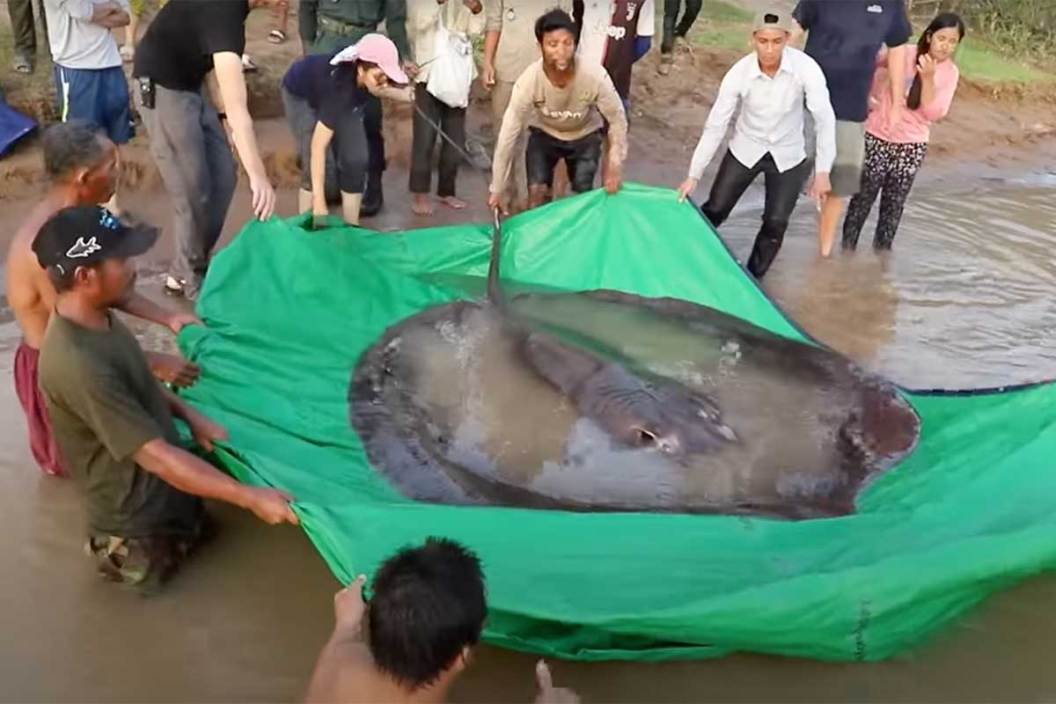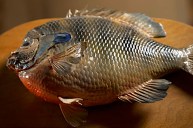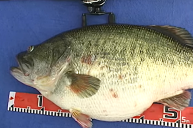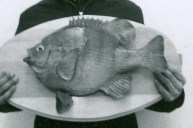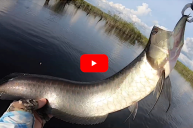A giant stingray was caught in the Mekong River in Cambodia on June 13, and it is being declared the world record for the largest freshwater fish ever.
The female, which was caught, measured, weighed, and then safely released, tipped the scales at 661 pounds and just over 13 feet long.
42-year-old fisherman Moul Thun from Kaoh Preah was the angler who reeled in the record stingray, and it's been verified by big fish expert Zeb Hogan as the largest documented freshwater fish to date.
"It proves these underwater leviathans, which are in critical danger, still exist," Hogan, a fish biologist at the University of Nevada, Reno, told National Geographic.
Hogan would know, as he's been part of a team documenting big fish for the better part of 20 years, known appropriately as the Megafishes Project.
The giant stingray was so large that it had to be weighed using three scales placed next to each other. The New York Times reported that it was 15 pounds larger than the Mekong giant catfish that was caught in Thailand in 2005, previously established as the record holder for largest freshwater fish ever caught.
Here's a video of the giant stingray's release.
Supported by the National Geographic Society, the Megafishes Project originally sought to find, study, and protect the biggest freshwater fish in the world. As the first two of those three objectives proved more and more difficult (large freshwater creatures often live in remote places and very little is done to learn more about them), the Megafishes Project leaned into conservation and hopes to bring more awareness and protection for species like the Wells catfish, arapaima, and of course, giant stingrays.
"It was never about just finding the biggest fish," Hogan said, "but looking for ways to protect these extraordinary animals that, in some cases, have been on Earth for hundreds of millions of years but were now drifting out of existence."
Local community outreach in Cambodia, and specifically near the Mekong, has helped Megafishes immensely, encouraging anglers to call and report their giant catches before releasing them, which is exactly what Thun did.
"The fact that [Thun] called us is testament to the importance of working with local communities," Hogan says. "These fishers can actually be great allies in working to protect these animals."
